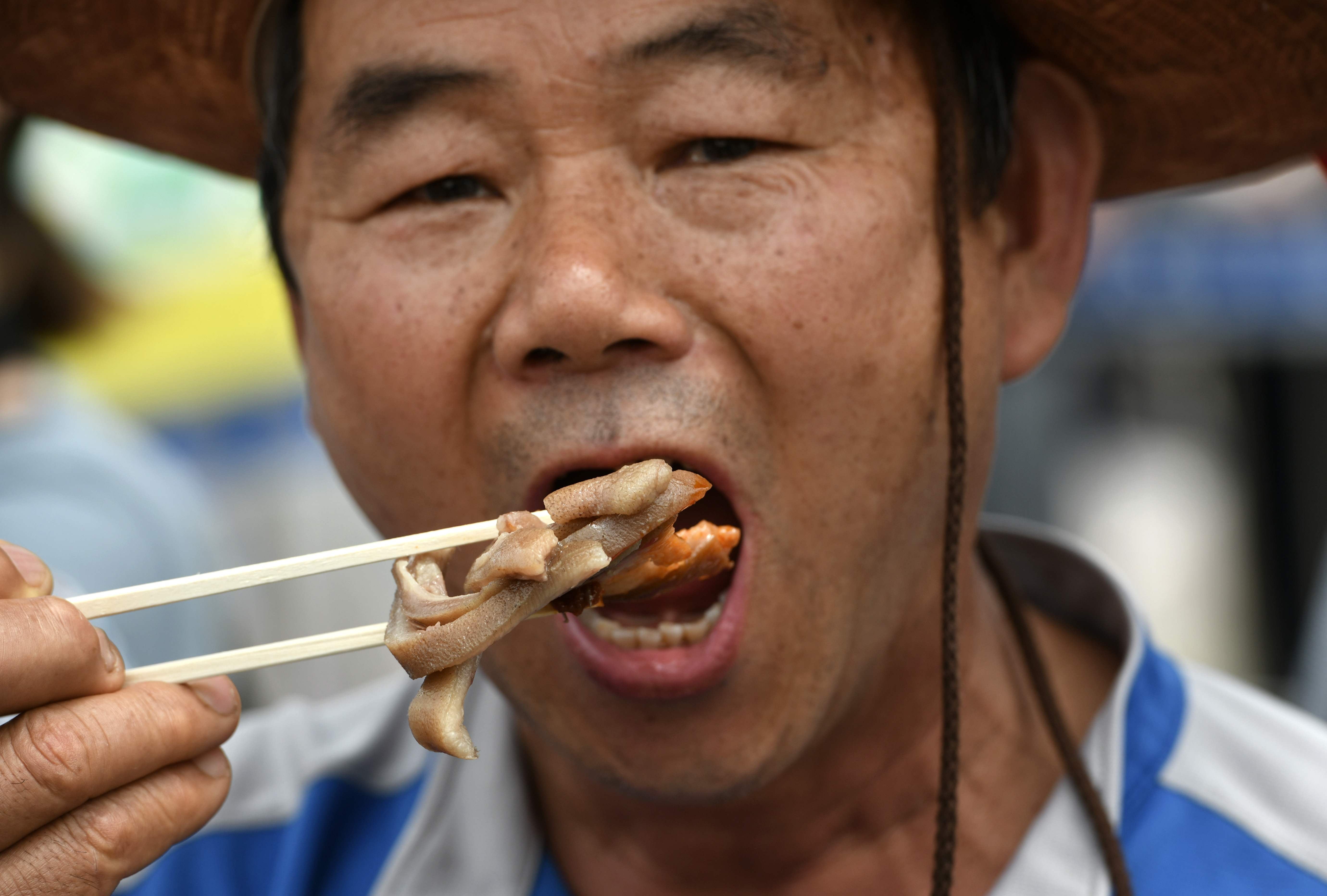South Korean parliament passes law banning dog meat trade
Parliament passes bill banning dog meat sale by overwhelming majority
Your support helps us to tell the story
From reproductive rights to climate change to Big Tech, The Independent is on the ground when the story is developing. Whether it's investigating the financials of Elon Musk's pro-Trump PAC or producing our latest documentary, 'The A Word', which shines a light on the American women fighting for reproductive rights, we know how important it is to parse out the facts from the messaging.
At such a critical moment in US history, we need reporters on the ground. Your donation allows us to keep sending journalists to speak to both sides of the story.
The Independent is trusted by Americans across the entire political spectrum. And unlike many other quality news outlets, we choose not to lock Americans out of our reporting and analysis with paywalls. We believe quality journalism should be available to everyone, paid for by those who can afford it.
Your support makes all the difference.The South Korean parliament on Tuesday passed a bill banning the sale of dog meat, outlawing the fading centuries-old practice.
The law will take effect after a three-year grace period to phase out the industry, effectively ending the trade by 2027.
It was passed by an overwhelming 208 votes with two abstentions in the single-chamber parliament, following approval from the bipartisan agriculture committee on Monday.
Consumption of dog meat has dwindled in the East Asian country over the years, amid criticism from animal rights groups and a fall in appetite for the meat among younger generations.
But the practice still holds cultural significance for older generations, and is served in restaurants. The South Korean government faced a backlash from dog farmers when it introduced bill in November last year.
Farmers argued that taking the meat off menus across the country would deprive them of their livelihoods, and they threatened to unleash two million canines on Seoul if the bill was passed.

The new law focuses on producers rather than consumers, banning the breeding and slaughter of dogs for meat as well as the trade or sale of dog meat. Offences would be punishable by up to three years in prison or a fine of 30m won (£17,890). There were no stipulated fines or jail terms for eating dog meat.
“This law is aimed at contributing to realising the values of animal rights, which pursue respect for life and a harmonious co-existence between humans and animals,” the legislation reads.
The government would provide support and compensation to farmers, butchers and other businesses facing closure or transition due to this law, it said.
The bill was welcomed by animal rights groups, who had been lobbying to end the practice. “This is history in the making,” said JungAh Chae, executive director of Humane Society International.

“We reached a tipping point where most Korean citizens reject eating dogs and want to see this suffering consigned to the history books, and today our policymakers have acted decisively to make that a reality,” he said in a statement.
Nearly one million dogs are “farmed and killed for human consumption” in a year, according to Humane Society International.
In a survey released by Animal Welfare Awareness, Research and Education, a Seoul-based thinktank, more than 94 per cent of respondents said they had not eaten dog meat for the past year and about 93 per cent said they would not do so in the future.
The agriculture ministry as of April 2022 estimated that nearly 1,100 farms were breeding 570,000 dogs to be served at around 1,600 restaurants.
In Defense of Animals, an animal protection organisation that has been campaigning against the trade for 20 years, said: "During the phaseout period, we will continue our vital work to save as many innocent lives as we can."
Dog farmers on Tuesday said they plan to file a constitutional appeal and launch rallies in protest against the legislation.
South Korean president Yoon Suk Yeol and first lady Kim Keon Hee are known as animal lovers and have adopted stray dogs. The first lady has been a vocal critic of dog meat consumption.

Join our commenting forum
Join thought-provoking conversations, follow other Independent readers and see their replies
Comments